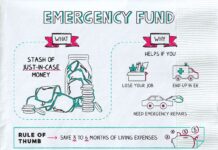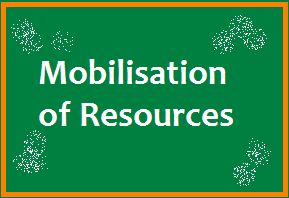When we think of managing our finances and setting ourselves up for the future, we tend to focus on our careers, income, savings, ways to invest, and getting on the property ladder. For most people, their biggest financial asset is their home and young people form their financial plan around getting a mortgage. The measure of financial success is synonymous with owning your own home.
However, there’s a fundamental asset that many people overlook, but which is the root of everything we’re able to accomplish in life – our health.
Even though you may have never considered it, your health is actually your biggest asset and here’s why:
Without Health your Ability to Work is Diminished
There are of course different levels of poor health, but if we take it to its logical extreme – having a serve physical disability means your ability to work is diminished or completely non-existent. You may only be able to do specific jobs, limited hours, and/or rely on government welfare and charity.
Do you have savings, can you afford a house?
People with disabilities do overcome extraordinary odds, but as an asset, their health does not have the same value as somebody in perfect physical condition.
Viewed in this way, if you look after your health you are investing in your future.
It’s Mental, Not Just Physical
Overall health encompasses both the physical and mental, and both are often linked together. If your physical health deteriorates it often has a mental element, such as hormone imbalances and fatigue. Your condition may also lead to depression or non-descript mental issues like brain fog.
We can all agree that being in poor health tends to affect your mental performance, especially if that poor health was caused or exacerbated by lack of exercise and poor diet.
Healthy body, healthy mind, is an apt saying.
And this is all without mentioning the impact explicit mental health problems have on earning potential.
Poor Health Costs Money
One of the prime reasons why we should look at health as an asset is the fact that poor health costs money. Like a car, if you run it ragged and don’t maintain it, you end up having to fork out for more expensive repairs or a complete replacement.
Likewise if you don’t look after yourself, fail to have dental and regular health checkups, eat poorly, don’t exercise, abuse drugs etc – eventually you will end up with a condition, disease or some ailment that is going to leave you with costly and often ongoing medical expenses (e.g. surgery and prescription medications).
Invest In Your Health
You have to speculate to accumulate; you have to invest money to make money. This also applies to your health.
Investing in good food and the nutrients you need to function efficiently, gym membership and exercise equipment, preventative and regular health procedures (e.g. regular professional dental cleans, blood work etc), all costs money but prevents (or at least postpones) much more costly medical bills.
It also helps keep you in optimum condition to learn, work and increase/maintain your earning potential.
If you’re overweight, depressed with a myriad of health conditions, you’re probably not going to be starting a successful business anytime soon.
Good health also projects a positive appearance. You are more likely to seal the deal or get that job if you look that part. That’s why for example getting a loan for dental work from the likes of dentalworkcash.com shouldn’t be considered vain or a waste of money. In fact, letting your teeth get too bad can actually contribute to life-threatening problems like heart disease!
You also need to invest in relaxation time, personal relationships and mental wellbeing. Poor mental health can also be expensive in the long run, as you may reach a point where you can no longer work or function in day to day life. Therapists cost money. Not reaching your potential due to mental illness loses potential income.
Therefore any mental health concerns should be addressed as soon as possible; ideally in childhood or adolescence, though this isn’t always in your control.
Furthermore, not only do the repercussions of not maintaining health cost money but leading an unhealthy lifestyle also costs money; arguably more than leading a healthy lifestyle. Junk food and take-outs, alcohol, smoking, drugs, sedentary entertainment – it all adds up.
Conclusion
Nobody is perfect and doing a complete lifestyle 180 often just leads you to rebound, but accepting that your health is your biggest asset really helps to put things into perspective. Slowly you can begin to make positive changes that will improve your long-term health, but also your wealth!










